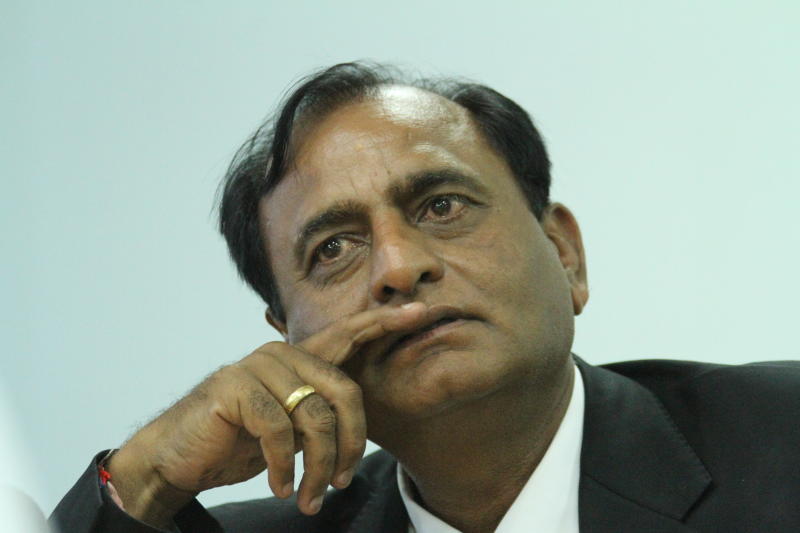Devki Group of Companies Chairman Narendra Raval (Guru). [David Njaaga, Standard] Mr Narendra Raval sat in his car, silently brooding over the unflattering turn of events.
On a dreary October morning, some pesky security guards had uncharacteristically plucked up the courage to block the tycoon from accessing his new property, a cement grinding plant in Machakos County that until recently belonged to Athi River Mining (ARM).
Throughout the 10-minute wait, Guru, as the tycoon is popularly known due to his early days as a priest, maintained the coolness of a man who is in the game for the long haul.
A shrewd deal-maker with an estate valued at Sh75.7 billion, according to Forbes Magazine — and keen to further expand this commercial fiefdom — Mr Raval would not have wished to be distracted by clueless servants who were slow to notice they had a new boss.
He was now in charge at ARM, having beaten other experienced cement manufacturers to add yet another feather to the cap of the Devki Group, Guru’s holding company. READ MORE
Devki Group, which was already the main steelmaker in the country, was now also the largest cement manufacturer.
Guru was well poised to reap big from the building bonanza, including the affordable housing project under President Uhuru Kenyatta’s Big Four agenda.
Mr Pradeep Paunrana, whose family founded ARM in the 1970s and whose orders the security guards were hell-bent on carrying out, had been ousted a year earlier after the debt-laden cement manufacturer was placed under administration.
He was now clutching at straws. The battle for the control of ARM, which Mr Paunrana sought to extend by blocking Guru and the receiver managers from accessing the plant, had already been won.
Mr Guru, who had paid Sh5 billion for the acquisition of ARM, had his sights on winning the war for the control of cement billions.
He was particularly keen on getting his hands on some Sh8.3 billion that cement manufacturers without clinker plants paid annually for the importation of clinker — a key ingredient used for the production of cement.Just as he, the astrologer, could accurately predict the future of presidents by reading their palms (as he put in his autobiography), the steel magnate thought he had seen the future of his expansive business empire in the cement industry. His strategy looked simple – quickly build enough capacity for clinker production, then push for a higher duty on import of clinker […]
